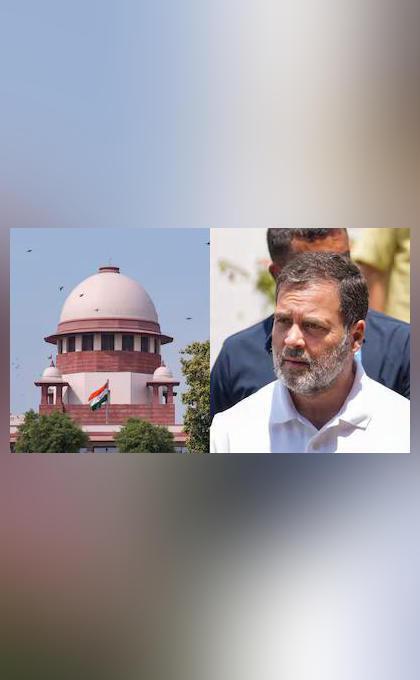
Why Ask on Social Media & Not in Parliament: SC to Rahul on ‘Land Grab’ Claim
In a recent development, the Supreme Court of India has rebuked Congress leader Rahul Gandhi over his claim that China had grabbed 2,000 square kilometers of Indian land. The court’s sharp rebuke came while staying a defamation case against Rahul for his remarks about the Indian Army.
Rahul had made the claim in 2020, sparking a national outcry and demands for an explanation from the government. The court’s intervention has raised questions about the appropriateness of making such serious allegations on social media, rather than in the Parliament where debates and discussions are meant to take place.
The Supreme Court’s scathing remarks were made during a hearing in the defamation case filed by the Indian Army against Rahul for his comments. The court expressed surprise at Rahul’s claim, asking how he knew that China had occupied 2,000 square kilometers of Indian land. The court’s skepticism was evident, as it questioned the basis of Rahul’s claim and why he had not raised the issue in Parliament, where it could have been discussed and debated.
The court’s intervention has sparked a heated debate about the role of social media in public discourse and the importance of fact-checking before making serious allegations. Many have questioned why Rahul chose to make the claim on social media, rather than in the Parliament where he could have used his platform to spark a meaningful discussion about the issue.
The Supreme Court’s rebuke has also highlighted the need for accountability in public discourse. While social media platforms provide a platform for individuals to express their opinions and raise concerns, they are also prone to misinformation and sensationalism. The court’s intervention serves as a reminder that serious allegations require evidence and credible sources, and that individuals must be held accountable for their words.
Rahul’s claim about China occupying 2,000 square kilometers of Indian land was made in 2020, during a heated debate over the India-China border dispute. The claim sparked widespread outrage, with many calling for an explanation from the government and demanding that Rahul provide evidence to back up his claim.
However, since then, there has been no concrete evidence to support Rahul’s claim. In fact, the government has repeatedly denied that China has occupied any Indian land, and has instead emphasized the need for dialogue and diplomacy to resolve the border dispute.
The Supreme Court’s intervention has also raised questions about the role of politicians in public discourse. While politicians are entitled to express their opinions and raise concerns, they must also be held accountable for their words. The court’s rebuke serves as a reminder that politicians must use their platforms responsibly and factually, and that they must be prepared to provide evidence to back up their claims.
In conclusion, the Supreme Court’s rebuke of Rahul Gandhi over his ‘land grab’ claim is a timely reminder of the importance of fact-checking and accountability in public discourse. While social media platforms provide a platform for individuals to express their opinions and raise concerns, they are also prone to misinformation and sensationalism. The court’s intervention serves as a reminder that serious allegations require evidence and credible sources, and that individuals must be held accountable for their words.






